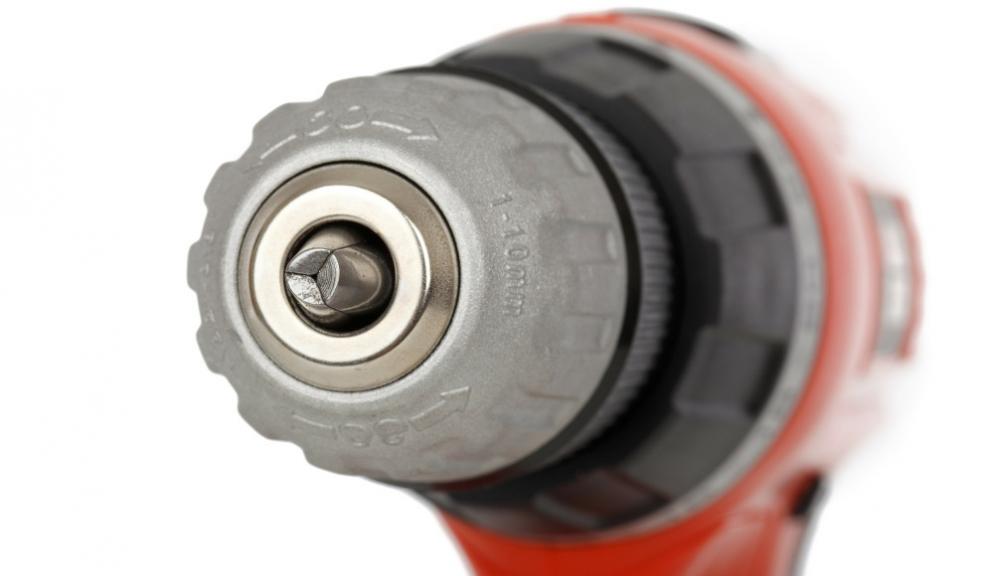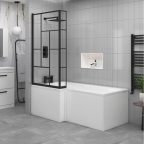
A high quality power drill is a real DIY essential
A high quality power drill is a real DIY essential, capable of taking the time, effort and hassle out of countless home and garden jobs. When it comes to picking a drill, there's more choice than ever. With loads of different features to choose from, including hammer action, variable speed control and gears, it can be difficult to know where to start. At Homebase, you'll find a wide variety of different cordless and corded drills suitable for a full range of tasks, which is why our friends at https://www.homebase.co.uk have created this handy guide designed to help ensure you get the drill that meets your needs exactly.
What different kinds of drills are available?
If you're more experienced, or looking to do some heavy work, you may appreciate the extra power and torque of a corded power drill. These mains-powered drills are perfect for more demanding jobs and frequent use. They also offer features not available on most cordless models.
With a corded drill, you'll never run out of power midway through a project. They also have greater power and torque, making them more suited to heavy-duty jobs, such as drilling through masonry.
Cordless
For the majority of DIY'ers, a cordless power drill with a rechargeable battery will be a good option. They're less powerful than corded drills but they're lightweight, easy to use, safe, and can be used almost anywhere. For long jobs, you may want to invest in a second battery or a drill with a quick charge function so you don't have to wait whilst your battery recharges.
Cordless drills have the advantage of being both flexible and convenient. You can use them to reach difficult places, especially when you're working up ladders, in trees, in the loft or outside. There is no trailing flex to get in the way, so they can also be safer to work with.
Battery type
If you do opt for a cordless model, you'll also want to think about the type of battery you need.
Lithium-ion batteries are smaller and lighter than traditional Ni Cad batteries. Lithium-ion batteries also hold their charge for longer meaning they need less frequent charging between jobs. Ni Cad batteries are bulkier and heavier, but tend to be a cheaper option if you're on a budget.
What drill power rating should you go for?
Cordless drills all come with a voltage rating (voltages range from 7.2v to 24v). The higher the voltage rating, the more powerful the drill. A higher voltage drill delivers more power, which will make drilling/screwing easier, so you'll finish the job quicker.
A higher voltage also usually means a heavier battery – but it's worth remembering that a bigger battery doesn't necessarily mean the drill will work for longer.
For corded power drills, it's all about the wattage. A higher wattage gives more power for heavier tasks and the drill can work for longer without the risk of overheating.
Generally, the higher the voltage or wattage, the more expensive the drill will be.
Do I need a drill with gears?
The gears in a drill transmit power from the motor to the chuck and the drill bit. Different gears let you do different things better. For general drilling, 1 gear is fine, and the simplest and cheapest drills usually come with a single gear.
If you want to use your power drill as a screwdriver, it's worth paying extra for a drill with a second gear. The first gear offers greater torque (twisting force) at lower speeds - so you have greater control of the drill when driving screws. The second gear is for drilling with a lower torque but a higher speed.
Most power drills come with a number of different torque settings. These are good for tackling the full range of materials you're likely to come across as an amateur DIY'er. They'll also have a reverse gear for undoing screws or freeing stuck drill bits.
Variable speed
Single-speed, low-end power drills aren't suitable for all drilling jobs. If you need to drill a range of materials of differing toughness, go for a drill with variable speed control, so you can match the speed of the drill to the job and the material you're working on.
The speed of a drill (measured in RPM - revolutions per minute) is important for overall performance. For precision jobs, a variable speed drill will enable you to start slowly and gradually increase the speed for more accurate, neater results. Drills with 'fast stop' will stop quickly when the trigger is released, giving you extra control and maximum accuracy.
Hammer action
Many drills come with a hammer action setting for drilling into heavier and harder materials, such as masonry. Hammer action supports your drilling with a simultaneous striking action, making drilling much quicker and easier. For hammer work, you'll need toughened tungsten carbide tipped (TCT) masonry bits.
How do you know a drill is right for you?
How does it feel?
When you pick up a power drill, it's sensible to check that you can lift it comfortably and that it isn't too heavy or bulky for you. If it's on the heavy side you may struggle when drilling overhead, or during extended periods of work.
Check if the handle is comfortable (especially if you're left-handed) – you may find a rubberised or 'soft grip' anti-slip handle gives you a better hold. T-shaped handles are usually easier and more comfortable to use because the battery is centred, which makes the drill feel more balanced.
What's the battery life?
How long a battery lasts and how long it takes to recharge can all impact on your ability to get the job done, so before you make a purchase, it's a good idea to ask yourself the following questions:
Does it have a one-hour fast charge feature?
Can I buy an additional battery?
Are the batteries interchangeable with other power tools of the same brand?
Top Tip
Before you make a purchase, you may also want to think about drill package as a whole to ensure that it has everything you need to complete the tasks you want it to do.
Ask yourself:
Does the drill come with useful extras such as a good sturdy carry case?
Does it have all the drill bits you need?
Is there a good guarantee, what does it cover and how long does it last?














